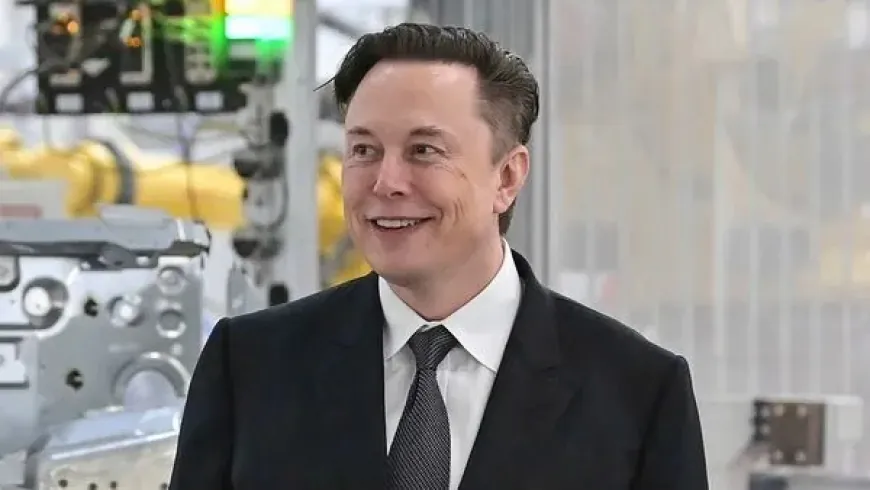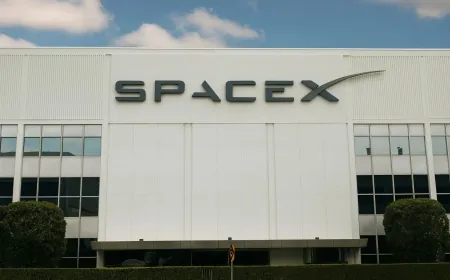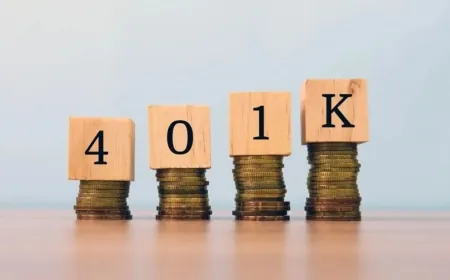Can Musk Become a Trillionaire? Tesla Investors Split Over $50 Billion Pay Deal
Tesla shareholders are voting on Elon Musk’s $50 billion pay deal, a decision that could expand his control and determine how much investors still trust his leadership.

Key Points
- Tesla shareholders are voting this week on Elon Musk’s $50 billion pay package.
- The plan would restore Musk’s stock options and raise his stake in Tesla.
- CalPERS and Norway’s sovereign wealth fund have opposed the proposal.
- The meeting also includes a proposed AI partnership with Musk’s xAI venture.
- The pay plan was previously overturned by a Delaware court for governance concerns.
Tesla investors are preparing to vote this week on a pay plan for chief executive Elon Musk that could give him tens of billions of dollars in stock if approved.
The package, one of the largest ever proposed for a public company executive, could lift Musk’s stake in Tesla close to 30% and further cement his control over the electric car maker he helped build.
The vote comes as Tesla faces slower sales, rising competition, and growing debate about Musk’s leadership style. Pension funds, analysts, and regulators are watching closely, calling it a test of how much power one individual should hold inside a company of Tesla’s size.
Shareholders to Decide at Annual Meeting
The decision will be made during Tesla’s annual shareholder meeting in Austin, Texas.
The pay plan was first introduced in 2018 and approved by investors at the time, but a Delaware court later cancelled it, saying the board that created it had too many personal ties to Musk.
Tesla’s directors are now asking shareholders to approve the same structure again.
If they do, Musk will regain stock options currently valued at about $50 billion, provided he meets a series of performance goals tied to the company’s financial results and market value.
Musk already owns roughly 15% of Tesla’s stock. The new award would nearly double his ownership and give him stronger control over major decisions, including product strategy and new investments.
How the Pay Package Works
Under the plan, Musk will not receive any salary or cash bonus. Instead, he will get stock options in twelve parts.
Each part becomes available only if Tesla meets a specific target — such as a jump in market capitalization, growth in profit, or an increase in production.
When the plan was first approved, Tesla was worth about $60 billion. Its value has since climbed to around $1.5 trillion, a rise that the company says validates the system.
If investors vote to restore it, the options could be reissued and exercisable over the next decade if Tesla continues to meet performance benchmarks.
Large Investors Oppose the Deal
Several of the world’s biggest funds have said they will not support the package.
The California Public Employees’ Retirement System (CalPERS) and Norway’s sovereign wealth fund, which together manage trillions of dollars in assets, have both urged a vote against it.
They argue that Tesla’s board is too closely linked to Musk and that the rewards are disproportionate.
Two independent advisory groups, Institutional Shareholder Services (ISS) and Glass Lewis, also recommended that investors reject the proposal.
Their reports warned that Musk already has more than enough incentive through his current ownership and that the plan “rewards past gains more than future performance.”
These critics say the issue is not only the amount of money involved but also the principle of accountability. Tesla’s board, they note, includes Kimbal Musk, Elon’s brother, and others who have long worked with him.
Supporters Credit Musk for Tesla’s Growth
Many investors, especially smaller ones, continue to defend the plan.
They point to Tesla’s global expansion, strong brand recognition, and leadership in electric vehicles as proof that Musk deserves the reward.
Ron Baron, founder of Baron Capital Management and a major shareholder, said Musk “built Tesla from nothing and changed the auto industry.”
He added that the plan does not pay Musk until results are delivered. “This isn’t a gift,” he said. “It’s a bet on continued success.”
Musk’s supporters often note that he has never taken a salary from Tesla and that his personal wealth rises or falls entirely with the company’s stock price.
What Musk Says About the Vote
Musk says he wants the package not for the money but for control.
He has told investors that he wants to expand his ownership to make sure Tesla stays aligned with his long-term vision, especially in areas such as artificial intelligence and robotics.
At a recent event, Musk said Tesla’s future depends on projects like the Optimus humanoid robot, which he claims could one day outnumber humans.
“I don’t want to lose influence over technology that powerful,” he said.
He has also hinted that if shareholders reject the plan, he may reduce his involvement with Tesla. “If people don’t think my contribution is valuable, I’ll spend my time elsewhere,” Musk posted on X.
How the Vote Could Play Out
Musk’s 15% stake in Tesla gives him a strong starting point, but not enough to guarantee a win.
Analysts expect the outcome to depend on how large institutional investors vote, since many individual shareholders are loyal to Musk and likely to back him.
Tesla’s share price has risen sharply in recent months, helped by renewed optimism about self-driving technology and the company’s data-focused business model.
However, the debate around Musk’s behavior — including his political comments and management of other companies like X and SpaceX — continues to divide investors.
Comparison With Historic Fortunes
If Tesla’s value keeps rising and Musk’s options are restored, his net worth could surpass $1 trillion, making him the wealthiest person in modern history.
By comparison, industrial tycoon John D. Rockefeller’s peak fortune in 1913 would equal about $630 billion today, according to Guinness World Records.
Musk’s current wealth is estimated at $493 billion, according to Forbes, already more than double that of the 19th-century magnate Cornelius Vanderbilt and steel baron Andrew Carnegie when adjusted for inflation.
Yet Musk’s wealth remains tied to Tesla’s volatile share price, which can swing billions in value within days.
Ethical Concerns Over Extreme Wealth
The proposed payout has attracted attention outside financial circles.
In a recent address, Pope Leo XIV referred to Musk’s compensation as a sign of widening inequality, warning that “if this is what society values most, we have lost perspective.”
Religious and civic groups have echoed those concerns, arguing that the gap between executive pay and worker income continues to grow across industries.
Tesla has not commented on those remarks but said its compensation structure reflects “risk and performance on a scale unmatched in modern business.”
Tesla’s Mixed Business Results
Tesla remains the world’s most valuable carmaker, but its recent performance has been uneven.
The company reported declining vehicle sales in several regions, including a 50% drop in Germany last month. Analysts say competition from Chinese manufacturers and slower global demand for electric vehicles have put pressure on margins.
Musk’s promises about self-driving cars have also run into delays. Tesla’s driverless taxis still require human safety monitors, and regulators in Europe have not yet approved its Full Self-Driving software.
At the same time, Tesla has achieved notable progress in battery production, energy storage, and cost reduction.
Despite weaker short-term results, its share price remains supported by investors who believe Tesla will ultimately transition into a data and AI company rather than just an automaker.
Investor Opinions Remain Divided
Investor sentiment is sharply split. Some view Musk as irreplaceable; others see his dominance as a liability.
Nancy Tengler, a Tesla owner and portfolio manager, said Musk often “pushes the company to the edge but manages to pull it back in time.”
That reputation for risk-taking has defined Tesla’s culture. Supporters call it vision; critics call it recklessness.
Either way, the company’s trajectory continues to depend on Musk’s decisions more than any other factor.
xAI Partnership, Board Seats Up for Vote
In addition to Musk’s pay package, Tesla’s shareholders will vote on whether the company can enter a limited partnership with xAI, Musk’s artificial intelligence venture.
The measure would allow Tesla to share select infrastructure and research resources with xAI, particularly in AI model training and in-car automation systems.
Some institutional investors have raised concerns about potential conflicts of interest, noting that Tesla’s Dojo supercomputer and vehicle data could indirectly benefit Musk’s privately held firm.
The board says any cooperation would follow “standard governance procedures” and remain subject to regulatory disclosure.
Shareholders will also vote on the renewal of several board members who have longstanding ties to Musk, a recurring issue among funds pressing for greater board independence.
What Follows the Shareholder Vote
If investors approve the pay package, Tesla will reissue Musk’s stock options and resume implementation under its Texas incorporation. That would also close the chapter on the Delaware ruling that previously invalidated the plan.
The company is expected to file the results with the U.S. Securities and Exchange Commission (SEC) shortly after the meeting. A favorable outcome could strengthen Musk’s authority and reduce short-term governance uncertainty, though analysts say investor focus will quickly return to vehicle demand, margins, and AI investments.
If the proposal fails, Tesla’s board will likely need to draft a revised compensation structure, potentially aligning it more closely with industry norms. Some funds have already indicated that a smaller, staged incentive plan would attract broader support.
Either result will influence Tesla’s leadership stability and its market perception. Approval would reaffirm investor confidence in Musk’s long-term vision; rejection could signal growing pressure for a more conventional governance model and stronger checks on executive power.
Also Read: Elon Musk May Quit Tesla if $1 Trillion Pay Plan Fails
































































